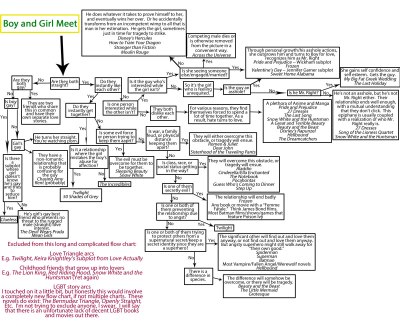It’s time for more whirlwind advice from a lowly literary intern. Today we’re going to look at a couple big DON’Ts, and maybe a DO if we have time. Let’s get to it!
#4 – Don’t ramble on and on! (I know, I should take my own advice, right?)
We get lots of query letters and emails. Hundreds a month. And we’re one of the smaller agencies out there. It’s our job to read and respond to all of those queries as quickly as possible. This means that we do not have time to read your life story. Your query should tell us exactly what we want to know – and nothing more. This usually includes a brief synopsis of your work, a breakdown of what categories your work fits in to (Young Adult/Adult; Fiction/Nonfiction; etc.), word count and assurance that the manuscript/proposal is complete, and a little bit about yourself. If you’ve been published before, have an MFA in Creative Writing, whatever, we do want to know that. We may even want to know how you heard about us. What we don’t want is:
Hi there, agents! How are you today? I’m doing fine, thank you. (I just assumed you asked me how I was back) I heard about you on Writing Website and then I read all of the novels you’ve represented and I decided we just had to work together. Please consider my novel, Hitting on Dummies. It’s kind of a Satire-Meets-Parody-Meets-Film Noir type deal. Now let me provide you with a three-page synopsis, the first seven chapters, and my life history…
Did you get bored reading that? Maybe not, since I tried to make it funny, but things like this do happen. My coworkers and I often sigh in frustration as we mutter to the computer screen, begging the email to somehow produce the vital details that we’ve desperately been searching for through all the fluff.

I’m not saying you should be curt or rude, or risk cutting down your synopsis for the sake of brevity, but when querying an agent, believe me – less is more.
#5 – Do your research!
I’m putting this in here because it ties in to the previous point. I know doing research is a bore, but it’s necessary. Each agent has different specifications for queries – some aren’t accepting unsolicited queries at this time, some only want a synopsis and a brief bio, others want you to include some sample chapters with your query (usually in the body of the email, when sent electronically), and some will specifically state that they don’t represent certain genres – and that genre might be yours! (We have received several queries for children’s picture books, which we simply do not represent. End of story. Aw, crap, I’ll leave that in, but no pun intended.) Others still will tell you that they don’t accept snail mail queries, and some others even want you to spell their name right. Yes, as I’ve said, we’ve seen some interesting variations of our boss’ name. If nothing else, please make sure you get the name and sex/gender/pronouns of the agent you’re querying right. And do try to make it personal. Chances are, your query isn’t going to be read by the agent him/her/themself, but address it to them anyway. No “To whom it may concern” or “Dear Sir/Madam.” I’ve seen both, and it made me feel like the author couldn’t be bothered to look up who they were writing to. This also leads me to…
#6 – Your query will most likely not be read by the agent you’re addressing.
Did you see what I said up there about the hundreds of queries a month? Did you note that I’m an intern? That’s because there is just no way that one person could possibly handle that influx of queries – not to mention other business information.

So don’t kid yourself. An intern or an assistant is probably going to be reading your query first, but they are just as important as the agent, if not more. In order to get the agent to take notice of your work, you first have to impress the intern. So listen to the advice I’m giving, because this is the kind of stuff I pay attention to before telling my boss she should look at a book. And don’t be offended by the idea that the agent probably isn’t going to even look at your query letter. First try to answer 150 emails a day, 5 days a week. Then tell me you don’t want interns reading your query.
Finally…
#7 – Don’t ask us to recommend other agents to you if we reject you.
We’ve gotten this a few times: We send out a rejection, and the author writes back thanking us for our time, and asking us if we could maybe possibly recommend some other agents that they might maybe possibly be able to query. Here’s why this is bad:
Remember the “Do your research” advice up there? Remember the “We get a ton of emails every day that we have to answer”? We’re not going to do your research for you, Lazy McGee.

And we’re certainly not going to give you other agents’ names, because it’s possible that you might then write to that agent saying, “I got a glowing recommendation from this other agent, and he/she/they said that you’d probably be really interested in my work.” That’s not what we said, but you could certainly lie, and we wouldn’t be able to stop you. And then our reputation would be on the line. So don’t ask us, because we won’t tell you.
That’s all for now! I think I’ll dedicate one more post to this subject, and then I’ll be done with it.
Word of the Day: Ignoramus (n) – an extremely ignorant person.
(Hint: Don’t be one of those)
Also, this XKCD made me think of, well…me.







